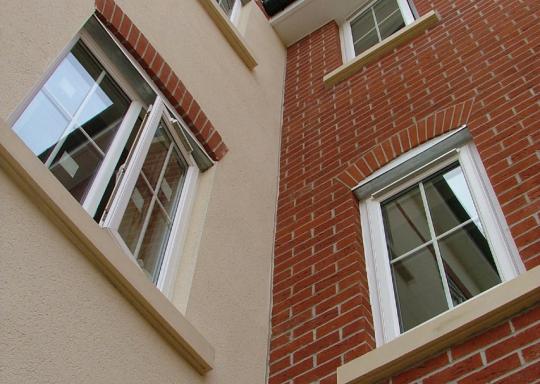Centre for Ageing Better calls on the Government to make homes more accessible
As co-chairs of the housing Made for Everyone (HoME) coalition, Ageing Better calls for the Government to introduce legislation immediately to introduce a universal rise in accessibility standards. They are arguing that the financial and societal benefits of raising the accessibility standards of new homes outweigh the costs of implementing them.
They point to the positive social and financial impact of building more accessible homes. These include:
- Direct health benefits to the occupants and savings to the NHS from fewer falls and other injuries around the home
- Reductions in delayed transfers of care from hospitals back to patients’ homes
- Reductions in direct care, aftercare and assistance as people enabled to live independently for longer
- Wellbeing and mental health benefits for residents finally receiving suitable accommodation
- Reductions in the need for retrofitting adaptations into homes later, which is more costly than making them part of the building’s design
In terms of savings to the public purse, the introduction of minimum accessibility standards for new homes will help reduce:
- The £323m cost every year to the NHS and almost £2bn annual cost to society of falls on stairs and on the level in homes in England
- The £573m annual cost of the Disabled Facilities Grants to the Department for Levelling Up, Housing and Communities to make accessibility improvements in people’s homes
- The estimated £2m annual cost to the NHS of delayed transfer of care because of accessibility issues such as awaiting community equipment and adaptations within the home
You can show your support and be a part of the call for more accessible homes. Get involved on social media using the suggested social posts available on the Ageing Better website.
Fazilet Hadi, Head of Policy at Disability Rights UK, said,
“It’s positive that the Government has committed to increasing the accessibility of new build homes, but we need to know what this actually means.
With only a small percentage of housing accessible and the number of older Disabled people growing, increasing the stock of accessible housing must be a top priority. Setting higher accessibility standards, including a proportion of new homes fit for wheelchair users, provides councils and developers with clear rules of engagement.”
Holly Holder, Deputy Director for Homes at the Centre for Ageing Better, said:
“Raising the standard of accessibility has the potential to change millions of lives and to cut some of the huge societal costs, particularly from reduced demand on health services, that come when people are forced to live in homes that do not meet their needs because of the lack of any appropriate alternative.
By continuing to build new homes that are not accessible to all, we would effectively be building in more costs in adaptations needed in the future, more cost in terms of NHS and care spending and more carbon costs as homes aren’t fit for purpose in the long term."


